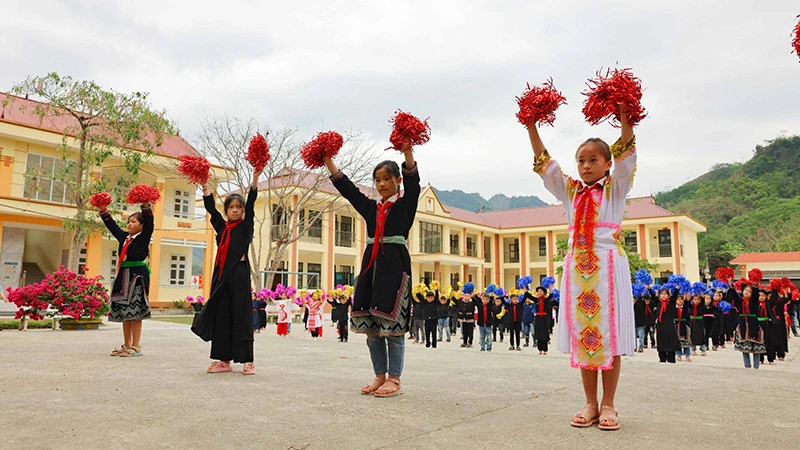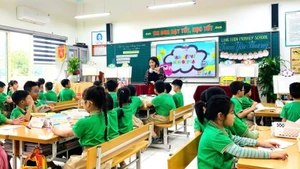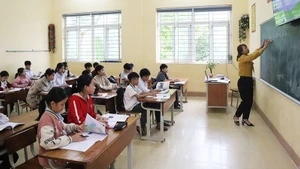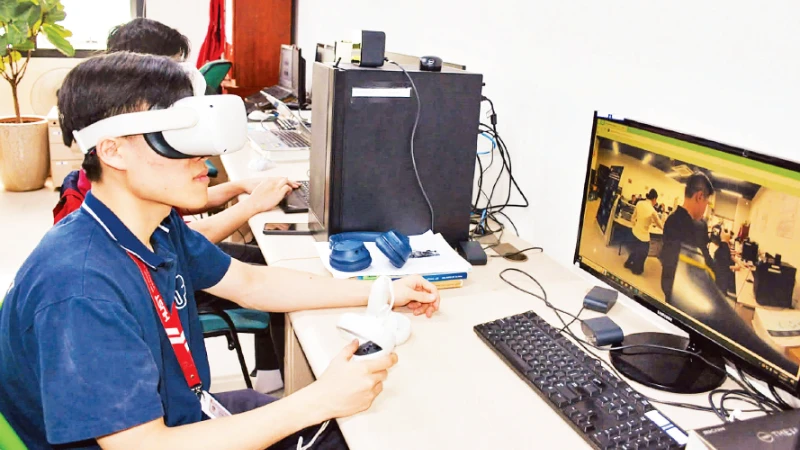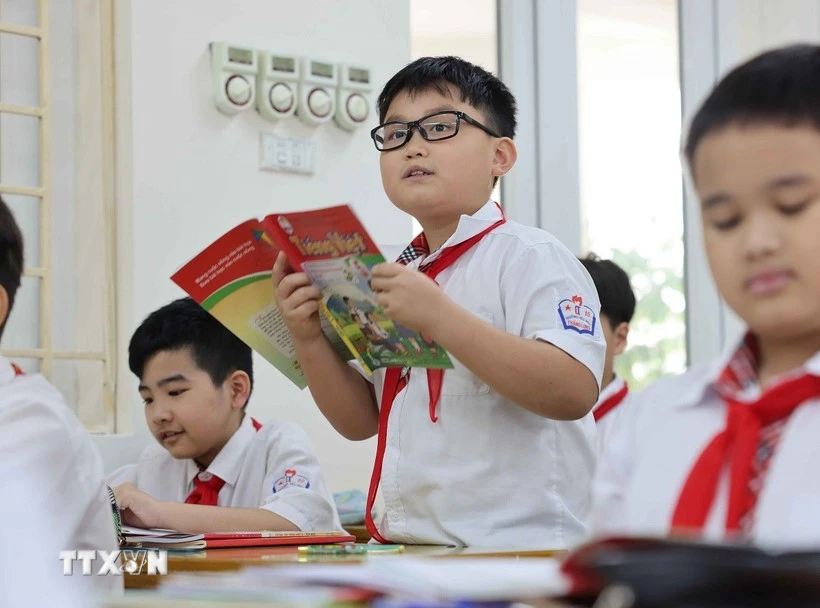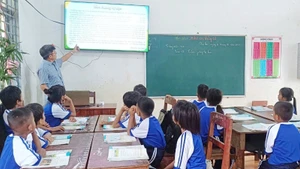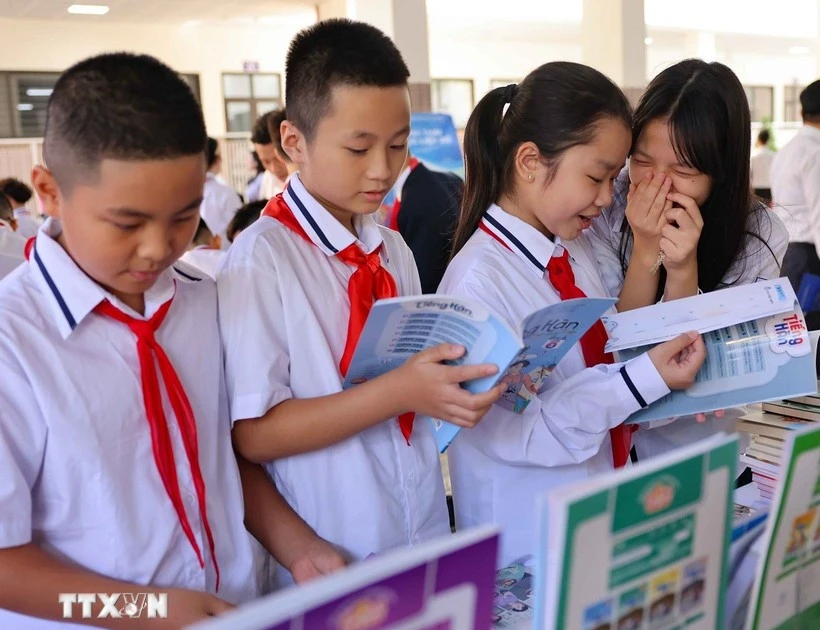As such, the facilities and teaching equipment of schools in the region have been improved and gradually modernised, contributing to improving the quality of education.
Ethnic minority and mountainous areas account for three-quarters of the country's natural area, with fragmented terrain, steep slopes, harsh climates, and difficulty in transportation.
Accounting for 14.6% of the country's population, ethnic minorities are scattered across the country, and their lives are still full of difficulties, which significantly affects the development of education and training.
Faced with the above difficulties, the Ministry of Education and Training as well as localities have applied a number of solutions to overcome them, gradually creating positive changes in teaching and learning.
Launched in July 2023, the project to renovate and upgrade Ho Dap Boarding Secondary School for Ethnic Minorities in Luc Ngan District, Bac Giang Province, has just been completed and put into use since mid-2024.
The project received a total investment of more than 19.3 billion VND from capital sources of the National Target Programme on Socio-Economic Development in Ethnic Minority-Inhabited and Mountainous Areas and capital from the province and district.
According to teacher Nguyen Xuan Tinh, Principal of Ho Dap Boarding Secondary School for Ethnic Minorities, the number of ethnic minority students at the school currently accounts for more than 80% of attendees. Most of them are living in difficult circumstances; due to the distance from their homes to school being quite far, they have to stay in boarding school.
The renovation and upgrading of school facilities have created favourable conditions for teaching and learning, contributing to improving the quality of education.
In Cao Bang Province, Vi Thi Huong, Head of the Department of Education and Training of Nguyen Binh District, said that the whole district has 11 boarding schools for ethnic minorities with an average of 2,800-3,100 students per school enjoying policies and regimes, of whom more than 1,600 students eat, sleep and study in boarding schools.
Through this model, the quality of education in ethnic minority areas has been significantly improved, the rate of good and excellent students has increased.
Boarding schools for ethnic minorities at primary and secondary levels ensure that there are two study sessions for students per day. The rate of students attending school regularly has reached over 98%; the rate of secondary school dropouts has decreased to 0.6% per school year.
In the coming time, Nguyen Binh District will continue to develop the model of ethnic boarding schools while strengthening facilities and teaching equipment to meet the requirements of implementing the 2018 general education programme.
In addition to building schools and classrooms, many educational institutions have focused on solutions to improve the quality of education. According to teacher Nguyen Thi Chung, Vice Principal of Ham Yen District Boarding Secondary and High School for Ethnic Minorities in Tuyen Quang Province, the school's Board of Directors regularly directs and encourages staff and teachers to innovate teaching methods to improve quality in the 2023-2024 school year.
Hoang Minh Canh, Deputy Director of the Department of Education and Training of Tuyen Quang Province, said that every year, the Department directs schools to develop, implement, and innovate teaching methods towards developing the qualities and abilities of students.
According to the Ministry of Education and Training, education and training in ethnic minority and mountainous areas has received special attention from the Party and State in recent times.
Policies and guidelines for ethnic minorities and mountainous areas have been institutionalised into legal documents and implemented seriously and promptly, thus meeting development requirements while receiving the people's consensus and support.
In addition to the State's stable policies, there are also programmes, projects and plans on educational development in disadvantaged areas. Therefore, the system of schools and classrooms in ethnic minorities and mountainous areas has been increasingly expanded, meeting the increasing learning needs of the people.
To date, localities in ethnic minorities and mountainous areas have basically completed the goal of universal education, and the quality of mass and spearhead education has been improved through each school year.
Teaching and learning have been encouraged to create equality in education, contributing to socio-economic development and political security stability in ethnic minorities and mountainous areas.
